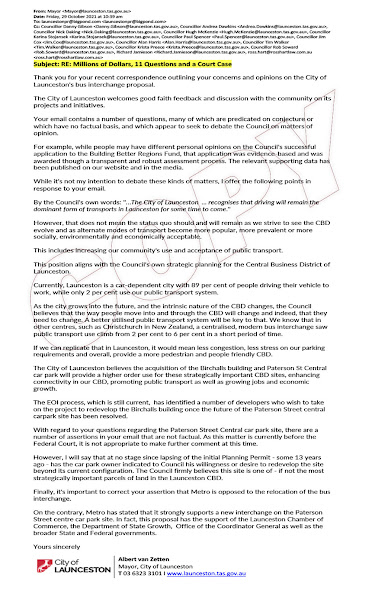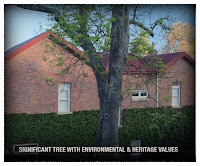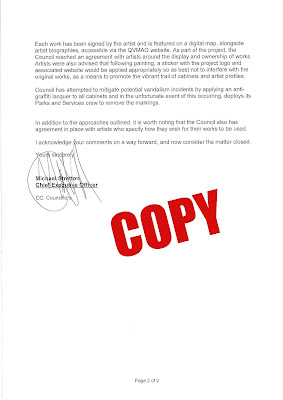CLICK ON AN IMAGE TO ENLARGE
Introduction
This Development Application (DA) brings into question several aspects of Tasmania’s planning processes and specifically so when its interpretation and implementation is ‘entrusted’ to Local Govt. Typically, a DA is oversighted by a General Manager (GM) who in turn “guarantees in writing” that Councillors/Alderpeople are making ‘determinations’ as a ‘Planning Authority’ upon the advice of people who have the appropriate qualifications and experience to enable them to give such advice to Councillors – those approving or rejecting a DA.
Notably, as advised by the Director of Local Govt., the Act is silent on the necessary ‘qualifications and/or experience’ a GM, in compliance with SECTION 65 of the Act must have in order to assert that she/he can in fact make such a “guarantee” with veracity.
SECTION 65 is quoted below:
• 65. Qualified persons
(1) A general manager must ensure that any advice, information or recommendation given to the council or a council committee is given by a person who has the qualifications or experience necessary to give such advice, information or recommendation.
(2) A council or council committee is not to decide on any matter which requires the advice of a qualified person without considering such advice unless
(a) the general manager certifies, in writing
(i) that such advice was obtained; and
(ii) that the general manager took the advice into account in providing general advice to the council or council committee; and
(b) a copy of that advice or, if the advice was given orally, a written transcript or summary of that advice is provided to the council or council committee with the general manager's certificate.
This DA has aspects to it that bring into question a range of considerations beyond ‘stock standard’ developments in the urban cultural landscape that arguably have significant impacts upon the wider community and well beyond the precinct within which it is located.
Councillors, as ‘community representatives’ will need to consider these issues carefully before granting approval – or indeed denying approval.
In the event that Councillors are in anyway unsure of the veracity of the advice they have before them they might well consider ‘leaving the DA on the table' until such time they can be ensured that they have all the appropriate advice.
In this instance, IF Council is disposed to decline approval of the DA what alternative options are open to the proponents to provide the much needed facilities it proposes in the Launceston Municipality? As always there is a multiplicity of choices and the Council along with the proponents might well seek advice from the University of Tasmania's School of Architecture. Within that school there has been an ongoing research program focused upon flexible accommodation for 'young people at risk' that arguably would have application to the issues at hand and potentially direct application if approached with an open mind.
It is not within the scope of this representation to discuss this issue beyond alerting Councillors to UTas Research in the area of concern that is at hand. Council may wish to broker an appropriate development as happens in other jurisdictions.
For further information please se the links below.
CULTURAL CONSIDERATIONS
This application comes before Council in the context that the building is 'Heritage Listed' and the developer proposes to change its use to one where it accommodates and institution charged with managing young people in a socially distressed circumstances.
All things being equal the building might well serve such a purpose. However, 'the site' is somewhat problematic in that it lacks conducive outdoor amenity and most specifically any 'green space' on site for unsupervised 'activity'. Given the social cum cultural circumstances and the 'social stressors' the cohort of 'clients' this development aims to serve that is problematic.
It has been asserted that the lack 'space and outdoor amenity' can be overcome and offset given that the building is sited across the road from a generously spaced city parkland. While this may be the case it also poses risks and the potential for unforeseen outcomes.
One set of risks related to the risks that the 'client cohort' might well be exposed to in such a 'public place' alone and indulging in the kinds of activity they need the 'space' for.
Another set of risks are to do with 'the public' being exposed to, confronted with, this 'client cohort' in a stress filled situation. Such situations are ever likely to present themselves and totally avoidable if the 'facility/institution' provides the necessary amenity on site.
Measuring the risk factors here requires the professional expertise of a social scientist – social welfare professional, anthropologist, cultural geographer. If 'Council planners' have not, or have not been able to access such advice, Councillors in their 'planning authority capacity', arguably would be acting without the advice SECTION 65 sets out to provide them with.
In the end, locating such a facility as one being proposed is one where 'cultural landscaping' become a primary consideration and that aught not be ignored.
ENVIRONMENTAL CONSIDERATIONS
Despite there being no specific reference to the tree on site in the DA, it is there and it is significant from various perspectives. From a heritage perspective it is an important component of the cultural landscape that 'the property' is an important component of. It offers visual amenity to the precinct and thus it needs protection.
Any approval of a development needs to make 'this tree's preservation' a component of approval. While it is claimed that Council in its capacity as a 'Planning Authority' has no power to preserve this tree and moreover it is also claimed that the developer can currently remove the tree without 'Council approval',
As a planning authority Council can place any conditions upon a development it sees fit. Only a recalcitrant developer would wish to challenge that 'authority' and/or appeal it Council's decision outside Council. If it is determined that say the tree is important in respect Council's much touted 'Climate Emergency Policy' Council should be following its own strategic initiative.
In other jurisdictions councils operating as a 'Planning Authority' they place high values on trees and especially so relative to mitigating climate change and visual amenity. The City of Launceston would do well to be seen to be proactive in maintaining, or rather enhancing, the city's urban spaces' vegetative canopy cover. SEE ATTACHED GRAPHIC
In other jurisdictions councils operating as a 'Planning Authority' they have set a percentage of canopy cover that needs to be maintained – typically at least 30%. Launceston's cover is somewhat less than that. Moreover, my advice from Town Hall is that the city's 'Planning Dept.' is disinclined to follow other jurisdictions' 'planning imperatives'.in this regard irrespective of the city's 'Climate Emergency Policy' . SEE ATTACHED GRAPHIC
In other jurisdictions councils operating as a 'Planning Authority' have set a dollar value, and thus a free for the removal of a 'tree' – typically between $500 to $2000 plus – with these funds used to plant trees at other sites to offset the carbon cum amenity loss. Again, my advice from Town Hall is that the city's 'Planning Dept.' is disinclined to follow other jurisdictions' 'planning imperatives' in this regard and one officer was quite antithetic to the proposition despite the city's declared 'Climate Emergency Policy'. Given Council's strategic decision relative to the city's 'Climate Emergency Policy' . SEE ATTACHED GRAPHIC
In summary it is quite clear that the city's 'development imperatives' up to now have been careless of, and disinclined to be mindful of, Council's Climate Emergency Policy. Given developments internationally council needs to proactive in implementing its the city 'Climate Emergency Policy' – no ifs, no buts!
CLICK ON AN IMAGE TO ENLARGE
CLICK ON AN IMAGE TO ENLARGE
RAY NORMAN
LAUNCESTON RESIDENT AND RATEPAYER































